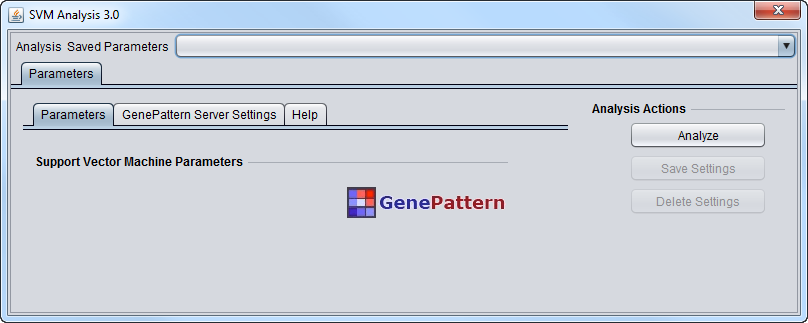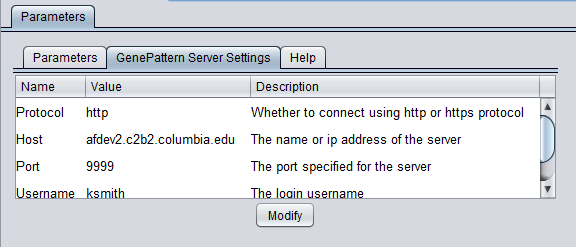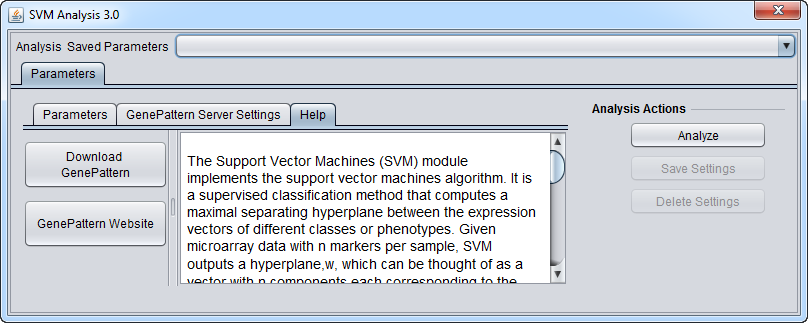Difference between revisions of "SVM"
m |
|||
| Line 1: | Line 1: | ||
The Support Vector Machines (SVM) module implements the support vector machines algorithm. It is a supervised classification method that computes a maximal separating hyperplane between the expression vectors of different classes or phenotypes. Given microarray data with ''n'' markers per sample, SVM outputs a hyperplane,''W'', which can be thought of as a vector with ''n'' components each corresponding to the expression of a particular marker. Loosely speaking, assuming that the expression values of each marker have similar ranges, the absolute magnitude of each element in ''W'' determines its importance in classifying a sample. | The Support Vector Machines (SVM) module implements the support vector machines algorithm. It is a supervised classification method that computes a maximal separating hyperplane between the expression vectors of different classes or phenotypes. Given microarray data with ''n'' markers per sample, SVM outputs a hyperplane,''W'', which can be thought of as a vector with ''n'' components each corresponding to the expression of a particular marker. Loosely speaking, assuming that the expression values of each marker have similar ranges, the absolute magnitude of each element in ''W'' determines its importance in classifying a sample. | ||
| + | |||
| + | |||
| + | [[Image:SVM_Parameters_tab.png]] | ||
| + | |||
| + | |||
| + | [[Image:SVM_Server_Settings.png]] | ||
| + | |||
| + | |||
| + | [[Image:SVM_GenePattern_Server_Settings.png]] | ||
| + | |||
| + | |||
| + | [[Image:SVM_Help_tab.png]] | ||
| + | |||
| + | |||
| + | |||
| + | |||
| + | |||
References: | References: | ||
Revision as of 18:08, 7 March 2011
The Support Vector Machines (SVM) module implements the support vector machines algorithm. It is a supervised classification method that computes a maximal separating hyperplane between the expression vectors of different classes or phenotypes. Given microarray data with n markers per sample, SVM outputs a hyperplane,W, which can be thought of as a vector with n components each corresponding to the expression of a particular marker. Loosely speaking, assuming that the expression values of each marker have similar ranges, the absolute magnitude of each element in W determines its importance in classifying a sample.
References:
- R. Rifkin, S. Mukherjee, P. Tamayo, S. Ramaswamy, C-H Yeang, M. Angelo, M. Reich, T. Poggio, E.S. Lander, T.R. Golub, J.P. Mesirov, An Analytical Method for Multiclass Molecular Cancer Classification, SIAM Review, 45:4, (2003).
- T. Evgeniou, M. Pontil, T. Poggio, Regularization networks and support vector machines, Adv. Comput. Math., 13 (2000), pp. 1-50.
- V. Vapnik, Statistical Learning Theory, Wiley, New York, 1998.




